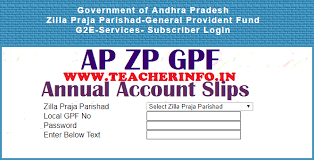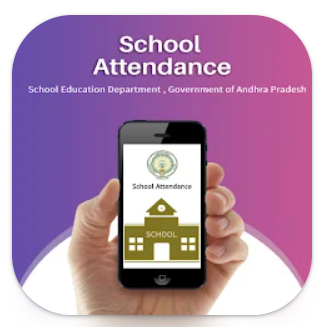SYLLABUS FOR RECRUITMENT TO THE POST OF DEPUTY EDUCATIONAL OFFICER/GRADE-1 GAZETTED HEAD MASTERS IN A.P. EDUCATIONAL SERVICE
PAPER – I (150M)
1.GENERAL STUDIES AND MENTAL ABILITY PAPER Important current events and issues affecting Andhra Pradesh on a global, national, and state level.
2. General Science and its applications to the everyday life Contemporary advancements in Science and Innovation and Data Innovation.
3. History of India - accentuation will be on expansive general comprehension of the subject in its social, financial, social and political perspectives with an emphasis on AP and Indian Public Development.
4. India's geography, with an emphasis on Andhra Pradesh.
5. Governance and polity in India: reforms, public policy, constitutional issues, and e-Governance initiatives
6. Planning and the economy of India Protection of the Environment and Sustainable Development Management of disasters: weakness profile, anticipation and alleviation systems, Utilization of Remote Detecting and GIS in the appraisal of Catastrophe
9. analytical capacity, logical interpretation, and logical reasoning
10. Analyses of Data: Data tabulation and visualization Fundamental data analysis and interpretation (Summary Statistics like mean, median, mode, and variance)
PAPER – II (150M)
EDUCATION – I (Degree standard)
(A) THE IMPORTANCE OF THE FOUNDATION OF EDUCATION:
1. The nature and scope of education's philosophical and sociological foundations.
2. Idealism; Naturalism; pragmatism; Realism; existentialism;
3. Gandhi; Tagore; Aurobindo; Vivekananda; Murthy Jiddu Krishna;
4. Education and socialization; Education and change in society; Culture and schooling; education and modernization; Equal opportunities for education; Training of More fragile segments.
B. Educational Psychological Theory:
I. A . INTRODUCTION TO EDUCATIONAL PSYCHOLOGY
Integration of Educational Psychology. The nature of Educational Psychology and its scope. Educational psychology methods
II. PRINCIPLES OF GROWTH AND DEVELOPMENT Growth and development principles. The stages of development—infancy, childhood, and adolescence—as well as the physical, mental, social, and emotional aspects of development and their educational implications for classroom instruction.
III. Learning.
The nature of learning, the theories of learning (behavioural, cognitive, and social), and how they relate to teaching, learning, and motivating students in the classroom; different kinds of intrinsic and extrinsic motivation, as well as how they can be used in the classroom.
IV. Individual variation and its evaluation
The significance of studying differences between people. Differences between and within individuals as well as their evaluation. The idea of personality and how it can be measured (using both projective and nonprojective methods). Understanding and assisting students with special needs, such as those who struggle academically or intellectually; creativity and talent The necessity and significance of school counseling and guidance.
V. Statistics The concept of statistics and the need for it to understand students' and teachers' behavior indices of the central tendency Variability indicators. correlation and a variety of ways to calculate correlation.
(C) Education Trends 1.
The significance, constitutional safeguard, and implementation challenges of universal education. Minimum level of instruction in primary education
2. Education waste and stagnation: definition, causes, issues, and solutions
3. Grown-up Training and Useful proficiency - Meaning, scope, issues included and methodologies for therapeutic activity.
4. Modern significance, issues, methodology, motivational aspects, and implementation of non-formal education.
5. Relationships between schools and the community—their necessity and significance, methods for bringing them together, utilization of community resources by individuals, and some practical methods for facilitating appropriate relationships
6. Problems with the medium of instruction, India's language, the three-language formula, its implications, and implementation challenges
7. Family life and population education: the issue, goals for raising awareness at the secondary level, obstacles to implementation, and ways to spread the right kind of family life and population education
8. Moral Instruction - importance and degree, ways to deal with Moral Training, distinction among Moral and Strict Schooling, Viable work.
9. Emotional and national integration: significance, character, issues, celebration of national holidays, and school and teacher roles in their implementation
10. Worldwide comprehension - schooling for harmony, demobilization and concurrence, meaning, nature, importance, fostering a more extensive point of view in the brain understudies.
11. Education for those who are culturally and socially marginalized—meaning—problems of significance, equality of opportunity, and methods for putting meaningful programs into action
12. Meaning, necessity, scope, approach, and teacher role in lifelong learning
13. Pre-service and in-service teacher education, as well as teacher professional organizations.
14. Education that is vocationalized and vocational education.
15. In Andhra Pradesh, centralized admissions to basic courses and Common Entrance Examinations are used.
16. recommendations from various committees and commissions devoted to education.
PAPER - III (150M)
Schooling - II (Degree Standard)
I) Latest things and difficulties in Schooling
ii) Advancement in Training
iii) Estimations and assessment
iv) Comprehensive Schooling
v) Data and Correspondence Innovation in the field of Schooling
vi) Instructive organization and management
vii) Orientation Refinement: Education as human capital, Education and Human Resource Development, Literacy-Saakshar Bharat Mission, Population Education, Role of Education in View of Liberalization, Privatization, and Globalization, Value Education, Peace Education, Programs and Projects - APPEP, DPEP, SSA, National Programme for Education of Girls at Elementary Level (NPEGEL), RMSA, Rashtriya Aveshkar Abhiyan (RAA), KGBVs, Model Schools, and Environmental
Motivating forces and unique arrangements
Acts/Freedoms: Child and Human Rights Act of 2009; RTI Act of 2005; National Curriculum Framework of 2005; National Educational Policy of 2020









